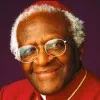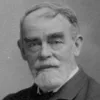Perhaps he’s reached that stage of intoxication which power is said to inspire, the state in which you believe you are indispensable and can therefore do anything, absolutely anything you feel like, anything at all.
Margaret Atwood (b. 1939) Canadian writer, literary critic, environmental activist
The Handmaid’s Tale, ch. 37 (1986)
(Source)
Quotations about:
omnipotence
Note not all quotations have been tagged, so Search may find additional quotes on this topic.
I could no longer reconcile the claims of faith with the facts of life. In particular, I could no longer explain how there can be a good and all-powerful God actively involved with this world, given the state of things. For many people who inhabit this planet, life is a cesspool of misery and suffering. I came to a point where I simply could not believe that there is a good and kindly disposed Ruler who is in charge of it.
If there is an all-powerful and loving God in this world, why is there so much excruciating pain and unspeakable suffering? The problem of suffering has haunted me for a very long time. It was what made me begin to think about religion when I was young, and it was what led me to question my faith when I was older. Ultimately, it was the reason I lost my faith.
Bart D. Ehrman (b. 1955) American Biblical scholar, author
God’s Problem, ch. 1 “Suffering and a Crisis of Faith” (2008)
(Source)
Because
He is all-powerful, must all-good, too, follow?
I judge but by the fruits — and they are bitter —
Which I must feed on for a fault not mine.
Charon, bite back your spleen:
this has been willed where what is willed must be,
and is not yours to ask what it may mean.[Caron, non ti crucciare:
vuolsi così colà dove si puote
ciò che si vuole, e più non dimandare]Dante Alighieri (1265-1321) Italian poet
The Divine Comedy [Divina Commedia], Book 1 “Inferno,” Canto 3, l. 94ff (3.94-96) [Virgil] (1309) [tr. Ciardi (1954), l. 91ff]
(Source)
Replying to Charon who complains that he cannot ferry a living person. (Source (Italian)). Alternate translations:Caron, do not torment
Yourself, nor trouble us with asking more;
For who would this, can do whate'er he wills.
[tr. Rogers (1782), l. 78ff]Cease, sullen Pilot of th' Infernal Tide!
Comission'd from above he seeks the shore,
And pleads the will of Heav'n's immortal Sire!
[tr. Boyd (1802), st. 21]Charon! thyself torment not: so 't is will'd,
Where will and power are one: ask thou no more.
[tr. Cary (1814)]Rest, angry Charon, rest:
So is it willed to be, where might and will
Go hand in hand, and brook no farther quest.
[tr. Dayman (1843)]Charon, vex not thyself: thus it is willed there, where what is willed can be done; and ask no more.
[tr. Carlyle (1849)]Vex not thyself:
Such is the will of Him, whose dwelling's where
He can do what he wills. Questions forbear.
[tr. Bannerman (1850)]"Charon," -- the Leader said -- "cease from thy rage;
There it is will'd, where is the pow'r to do
That which is will'd; so question thou no more."
[tr. Johnston (1867)]Vex thee not, Charon;
It is so willed there where is power to do
That which is willed; and farther question not.
[tr. Longfellow (1867)]Charon, vex not thyself; thus is it willed in that place where what is willed can be; and ask no more.
[tr. Butler (1885)]Charon, be not sore;
So is it willed above, where will can do
That which it pleases; do not question more.
[tr. Minchin (1885)]Charon, vex not thyself, it is thus willed there where is power to do that which is willed; and farther ask not.
[tr. Norton (1892)]Charon, trouble not thyself: thus is it willed, where what is willed hath power to be accomplished; and ask no more.
[tr. Sullivan (1893)]Charon, restrain thy fury;
Thus is it willed there where can be accomplished
Whatever is willed -- and further ask no question.
[tr. Griffith (1908)]Charon, do not torment thyself. It is so willed where will and power are one, and ask no more.
[tr. Sinclair (1939)]Charon, thy frowns forbear.
Thus is this thing willed there, where what is willed
Can be accomplished. Further question spare.
[tr. Binyon (1943)]Charon, why wilt thou roar
And chafe in vain? Thus it is willed where power
And will are one; enough; ask thou no more.
[tr. Sayers (1949)]Charon, do not rage. Thus it is willed there where that can be done which is willed; and ask no more.
[tr. Singleton (1970)]Charon, this is no time for anger!
It is so willed, there where the power is
for what is willed; that's all you need to know.
[tr. Musa (1971)]Charon, don't torment yourself:
our passage has been willed above, where One
can do what He has willed; and ask no more.
[tr. Mandelbaum (1980)]Charon, don't torment yourself:
It is willed there, where anything can be done
If it is willed: no need for further questions.
[tr. Sisson (1981)]Charon, do not rage:
Thus it is willed where everything may be
Simply if it is willed. Therefore, oblige,
And ask no more,
[tr. Pinsky (1994), l. 77ff]Charon, do not torture yourself with anger: this is willed where what is willed can be done, so ask no more.
[tr. Durling (1996)]Charon, do not vex yourself: it is willed there, where what is willed is done: ask no more.
[tr. Kline (2002)]Charon, to protest is useless.
What is willed is what will be, because
it can be done; so leave the matter thus.
[tr. Carson (2002)]"Charon," my leader, "don't torment yourself.
For this is willed where all is possible
that is willed there. And so demand no more."
[tr. Kirkpatrick (2006)]Charon, do not torment yourself.
It is willed where will and power are one,
and ask no more.
[tr. Hollander/Hollander (2007)]Charon, this nonsense won't do.
These things were decided by those forever able
To make decisions and see them done. Not you.
[tr. Raffel (2010)]Charon, never fear:
All this is wanted there where what is willed
Is said and done, so more than that don't ask.
[tr. James (2013)]
And I wanted someone who is absolutely and utterly powerful. It’s interesting because at the time, John Byrne had just taken over Superman and had announced that he was making Superman less powerful because he had become too powerful and you couldn’t write interesting stories about people that were too powerful. That started me thinking, “Well, no, actually you can, because what makes a person interesting or not interesting isn’t how powerful they are, but who they are.
Sometimes, of course, you wish you could whisper in God’s ear, “God, we know that you are in charge. Why don’t you make it slightly more obvious?”
Desmond Tutu (1931-2021) South African cleric, Anglican Archbishop of Cape Town, Nobel Laureate
Wallenberg Lecture, University of Michigan, Ann Arbor (29 Oct 2009)
(Source)
Video at 20:37.
For this is also a miracle, not onely to produce effects against, or above Nature, but before Nature; and to create Nature as great a miracle, as to contradict or transcend her. Wee doe too narrowly define the power of God, restraining it to our capacities. I hold that God can doe all things, how he should work contradictions I do not understand, yet dare not therefore deny.
Thomas Browne (1605-1682) English physician and author
Religio Medici, Part 1, sec. 27 (1643)
(Source)
God’s merits are so transcendent that it is not surprising his faults should be in reasonable proportion.
Samuel Butler (1835-1902) English novelist, satirist, scholar
The Note-Books of Samuel Butler, “Rebelliousness”(1912)Full text.









